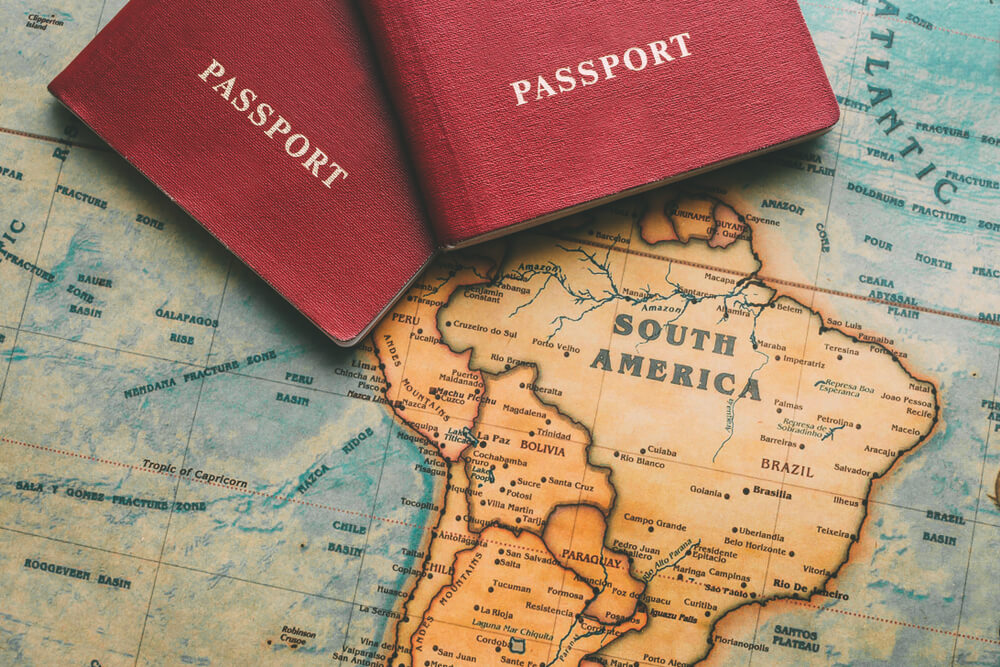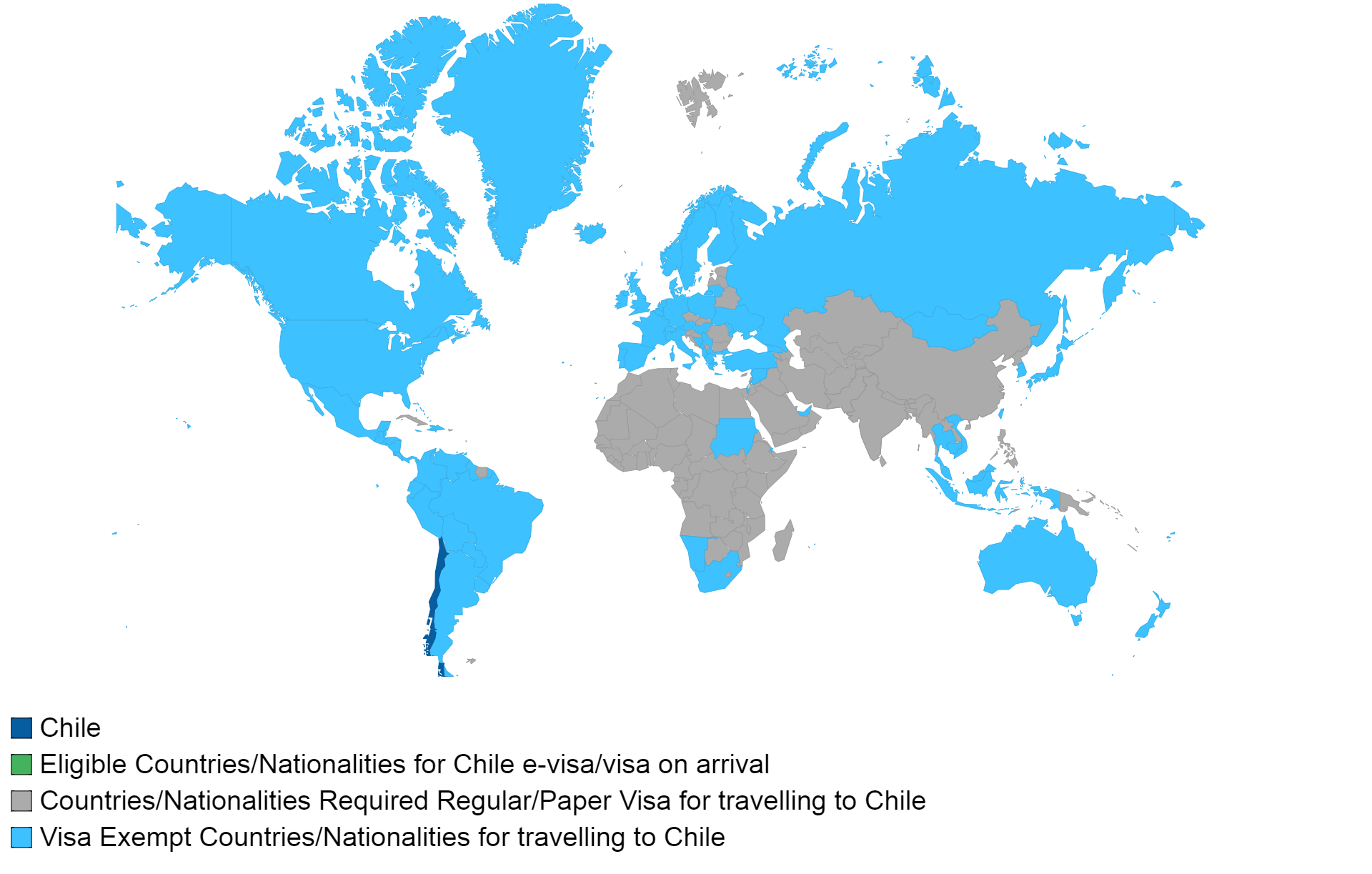When planning a trip to Chile, it's crucial to gather all the necessary information to ensure a smooth border crossing. Similar to other countries, the Government has defined specific prerequisites based on your nationality.
Fortunately, the online platform has compiled all the essential details for your travel preparations. Should you have any further inquiries, our experts are available to provide the answers you seek.

Chile's government has implemented a comprehensive strategy, known as the Protected Borders Plan, aimed at safeguarding the nation's borders and effectively responding to various epidemiological situations, both domestically and internationally. This proactive approach enables the detection and containment of new COVID-19 variants that may enter the country.
Transition from Mobility Pass to Vaccination Certificate
Previously, the use of the mobility pass led to challenges for non-resident foreigners and residents entering Chile, primarily due to extended queues and processing times. As a result, a significant change has been introduced: travellers are now required to present their vaccination certificate as the sole essential document for entry. In cases where the vaccination certificate is not available, alternative guidelines must be followed.
The pandemic's current context has prompted the establishment of three alert levels, each associated with specific protocols and travel restrictions. These alert levels are as follows:
Level 1 Alert
Community transmission of known and controlled variants within the country. No new variant alert is in effect. Travel restrictions are not applicable at this level, and isolation measures are only implemented when a confirmed case arises.
Level 2 Alert
Presence of a variant of concern, either without known community circulation or with initial community circulation. The country is equipped to respond effectively to prevent and control its spread. Travel restrictions involve partial limitations with reduced travel flows from destinations where the presence of a new variant is confirmed. Quarantine in health residences is required for individuals possessing a vaccination certificate or a positive COVID-19 test result.
Level 3 Alert
Emergence of a variant of concern with significant potential health impact and limited information available. Total travel restrictions are imposed for journeys from destinations where a new variant is confirmed. Mandatory quarantine in sanitary residences applies to all travellers arriving from destinations suspected of harbouring the new variant.
Travel restrictions, traveller management, and COVID-19 testing requirements vary across these alert levels:
Plan Ahead According to Alert Levels
When planning your travel to Chile, it's essential to consider the alert level currently in effect and consult the provided table for guidance. Adhering to the relevant protocols and requirements ensures a safe and informed journey to the country.
When preparing for a trip to Chile, it's crucial to ensure you have the following documents ready for presentation at immigration:
Chile offers various types of visas depending on your purpose of visit. Not all countries require a visa, so it's wise to verify using our document search engine or consult our experts.

At present, Chile has streamlined its border procedures, eliminating the need for an affidavit. Instead, foreign travellers must adhere to the specific entry requirements based on their nationality.
Vaccination Requirement for Entry to Chile
While not obligatory, it is advisable to travel to Chile with a vaccination certificate. This step contributes to the safety of fellow travellers and the country's citizens. Upon arrival at the border, whether by air or land, presenting your travel documents alongside your vaccination certificate from your country of origin is recommended.
Financial Requirements for Entry
To enter Chile, visitors are expected to demonstrate financial stability, ensuring their ability to cover expenses throughout their stay.
Entry Requirements with Work Permit
For the "Visa subject to an employment contract," a document granted to foreign citizens entering Chile for specific employment, the following documents are necessary:
For travellers entering Chile who are fully vaccinated, there is no requirement for presenting a negative PCR test. To be considered fully vaccinated, you must have received the second dose of the vaccine at least 14 days before your travel date.
For travellers who have not completed their vaccination regimen, an alternative is provided. Instead of the complete vaccination scheme, a negative PCR test result is required. This test should be conducted within 48 hours before your departure and presented along with other travel documents.
Quarantine Obligations Upon Arrival
Quarantine is applicable only to individuals confirmed as COVID-19 cases upon entering Chile. Those who fall under this category are obligated to observe a 7-day isolation period in designated health residences within the country.
Remaining informed about the latest entry regulations is vital as they might change, ensuring a seamless travel experience to Chile.
If you require further information or guidance regarding your travel plans to Chile or any inquiries related to e-Visa, feel free to reach out to our customer service team. You can contact us via email. Our dedicated experts are available around the clock, 24 hours a day, to assist you.
What documents do I need to travel to Chile?
To travel to Chile, you will need a valid passport (with more than 6 months validity), travel insurance (recommended), a vaccination certificate (recommended for quick entry), and proof of financial means.
Is an Affidavit necessary for entry into Chile?
No, currently Chile does not require an Affidavit for entry. The government has streamlined the process based on your nationality's specific requirements.
What is the vaccination requirement to enter Chile?
While not mandatory, it's advisable to enter Chile with a vaccination certificate. This helps ensure the safety of both fellow travellers and the country's residents. Presenting it alongside your travel documents is recommended upon arrival.
What are the economic requirements to enter Chile?
Travellers entering Chile should demonstrate financial solvency to cover their expenses during their stay.
What documents are needed to enter Chile with a work permit?
For entry with a work permit, documents include a valid passport, an employer's letter to the Consul, a notarized and translated work contract, criminal record certificates, and a medical certificate.
How can I apply for a visa and certificates to enter Chile?
Each type of visa and certificate has specific entry requirements. Seek assistance from experts to navigate the application process accurately.